We’re here, we’re queer, we’re petty and opinionated. And, like everyone else, it seems, we are ready to roll out our ultimate best-of and worst-of lists of the year. An annual tradition dating back to 2020, Xtra brings you our picks for the righteous queens and shady bitches of 2024.
It’s not all cattiness; some of these are unfortunately very serious. It’s been a year of downs: from Alberta introducing Canada’s harshest anti-trans legislation to date, to the election of the incoming new old U.S. president, clinics and organizations shutting down and widely criticized reports being touted as gospel.
But, as we’ve seen throughout history, these blows also bring communities together in solidarity and joy. And 2024 has had its share of those too. From crowning a new lesbian pop princess, to honouring lost legends, to families showing what allyship can really mean—queer and trans people and the people who love and want to protect them have seen some wins too, and have banded together when it’s been needed most.
Without further ado, we bring you the most fabulous and most fucked-up players of the year: 2024’s righteous queens and shady bitches.
Righteous Queens
Chappell Roan

Chappell Roan attends the premiere of Netflix’s “Olivia Rodrigo: GUTS World Tour” in October 2024. Credit: Frazer Harrison/Getty Images
“The Pink Pony Club” is now synonymous with “church” as far as queers are concerned. 2024 was undoubtedly the Year of Chappell Roan. I, an early adopter of “your favourite artist’s favourite artist,” had followed the pop princess since early 2023 on account of her wearing an indie lingerie brand I like and cute American queers on my feed attending her dive-bar shows of yore. I regret the day I decided not to buy tickets to her last Toronto show at a venue of only 1,000 people because I didn’t know what to wear and wrongly thought I could get tickets to see her on Olivia Rodrigo’s GUTS tour with my teenager.
While her album The Rise and Fall of a Midwest Princess came out in 2023, it was this year that catapulted her to superstardom. The lesbian drag queen may have drawn Lollapalooza’s largest crowd ever, but she never forgets her roots or her politics: she continues to champion drag queens across America, protecting trans kids and queer youth in the Midwest. In addition to her politics and her roots, Roan also keeps it real when it comes to mental health. She’s spoken out about how she’s been treated within the industry and by fans since sealing her celebrity status, has cancelled shows to prioritize self-care and has been open about her struggle with bipolar II disorder.
This year she did the Tonight Show and Saturday Night Live; Coachella and Osheaga, an NPR Tiny Desk concert, Rolling Stone named her spring single, “Good Luck, Babe!” the song of the year and now she enters 2025 nominated for six Grammys, all the while singing about vibrators and compulsory heterosexuality. Now that is a femininomenon.
Roan reached less conventional levels of success too: Kidz Bop did a cover of her music. Skeletons spelled out “H-O-T-T-O-G-O” on lawns across the country. Anecdotally, middle schoolers requested her music be played on field trips. And let’s not forget the Harris-Walz hats mimicking her “Midwest Princess” ones. Trying to find an artist whose popularity grew more than Chappell Roan’s in 2024? Good Luck, Babe.
—Tara-Michelle Ziniuk, managing editor
Trans youth and their families in Canada
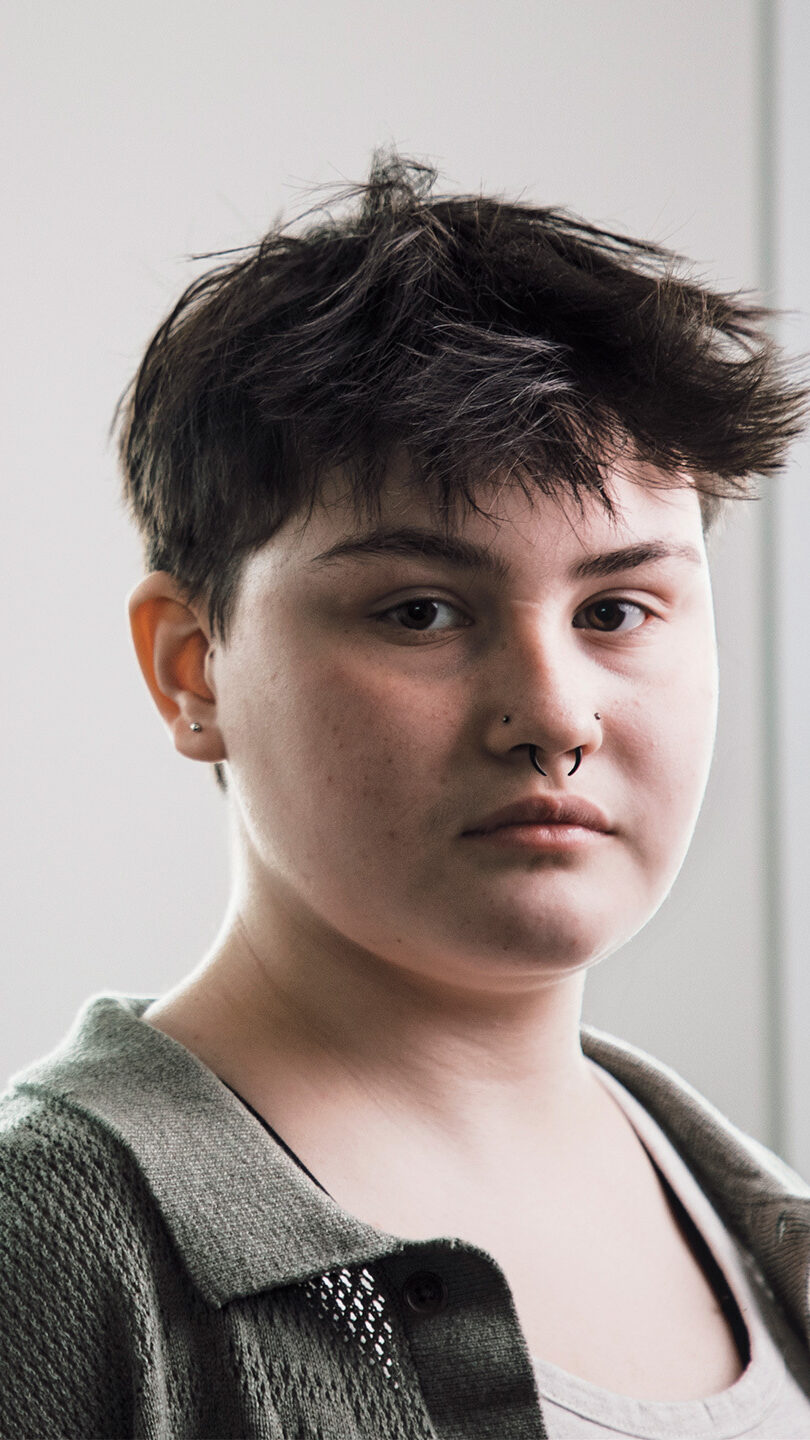
Jasper Cervo at his home in Alberta. Credit: Amber Bracken
It’s been yet another hard year to be trans: 2024 kicked off with Alberta introducing Canada’s harshest anti-trans laws to date, the transphobic panic machine has kept churning out new obsessive discourse and think pieces , and violence against trans people has continued to rise. It’s not just adults who have had to cope. Trans youth—and their rights and safety—have been at the centre of many of these messes.
When I spoke with trans youth across the country this year, it was extremely clear to me even the youngest among them understand exactly what’s going on. They feel targeted by bullies at school, by their governments, by “parental rights”-obsessed adults they’ve never met—and whose idea of an effective protest includes standing outside of high schools and screaming at teenagers and their supportive parents.
Grappling with all of it has worsened young people’s mental health in ways noticeable to both them and their loved ones. It was also clear, however, that these youth possess an amount of self-awareness and resilience that most adults can only aspire to. While their very existence was constantly being politicized and debated, trans youth in Canada fought back this year: they organized walkouts and protests, spoke out about how anti-trans policies affect their lives and continued to build supportive spaces in their own schools. Many supportive parents also stepped up. Some helped their kids organize, some signed on to legal challenges to restrictive legislation—and many more just did the quieter work of helping their kids feel safe and cared for at home.
While neither kids nor their parents should have been forced into these roles in the first place—leave them alone!—they gave us a master class in grace, determination and supportive care.
—Ziya Jones, senior editor, health
Cecilia Gentili
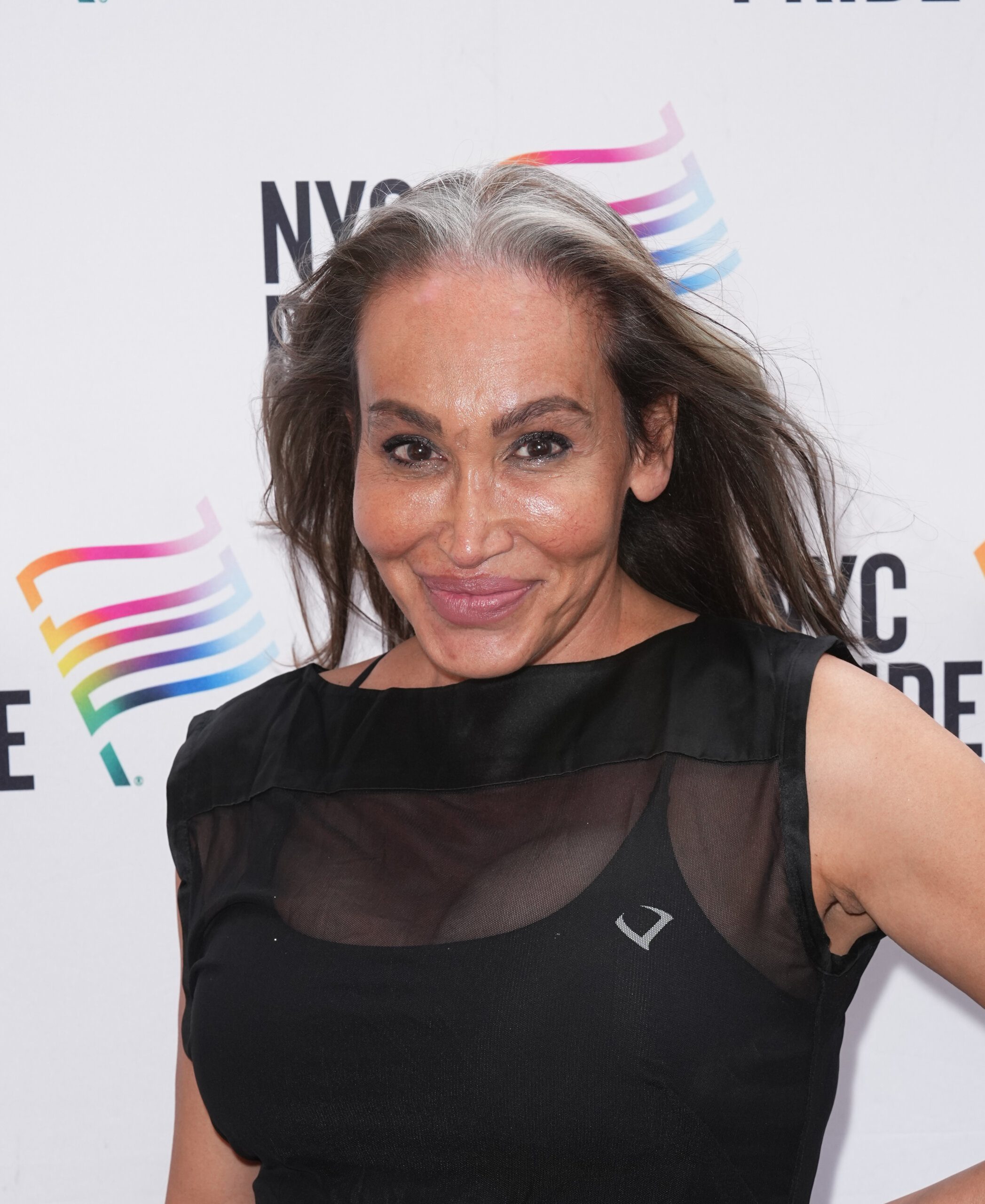
Cecilia Gentili attends the 2023 New York City Pride Rally on June 17, 2023 in New York City. Credit: John Nacion/Getty Images
When hundreds gathered at St. Patrick’s Cathedral in New York City to honour the life of trans advocate Cecilia Gentili earlier this year, it was abundantly clear just how many lives she touched throughout her work and life. An accomplished activist, author, actress and more, Gentili was well known for her advocacy for trans people, undocumented immigrants and sex workers. In New York, she was a political powerhouse: working on important state legislation that supported trafficking victims and helped end the state’s notorious “walking while trans” ban, a supposed anti-loitering statute that was often used to harass and arrest trans people of colour in particular. She was a leader in the local LGBTQ2S+ HIV/AIDS care non-profit scene, as well as a seasoned advocate for the decriminalization of sex work.
Gentili was also a cultural icon. She performed on stage—in the autobiographical Red Ink off-Broadway, and the one-woman show The Knife Cuts Both Ways—and appeared onscreen in FX’s Pose. She starred in fashion campaigns, and co-organized NYC’s first all-trans music festival, Transmissions Fest. Just two years ago, she released a memoir that “powerfully glides through abuse, sex work, forgiveness, friendship and class mobility,” as Grace Byron wrote for Xtra at the time.
At her funeral, TIME reported, chants of her name rang out, echoing through the cathedral: “Santa Cecilia!” “Madre de todas las putas!” Saint Cecilia! Mother of whores! Yes, trans people deserve this canonization, this sainthood. I just wish more of us could be honoured this way in life, rather than in death. I wish Cecilia Gentili were on this list and alive to see it.
—Oliver Haug, contributing editor
Title IX
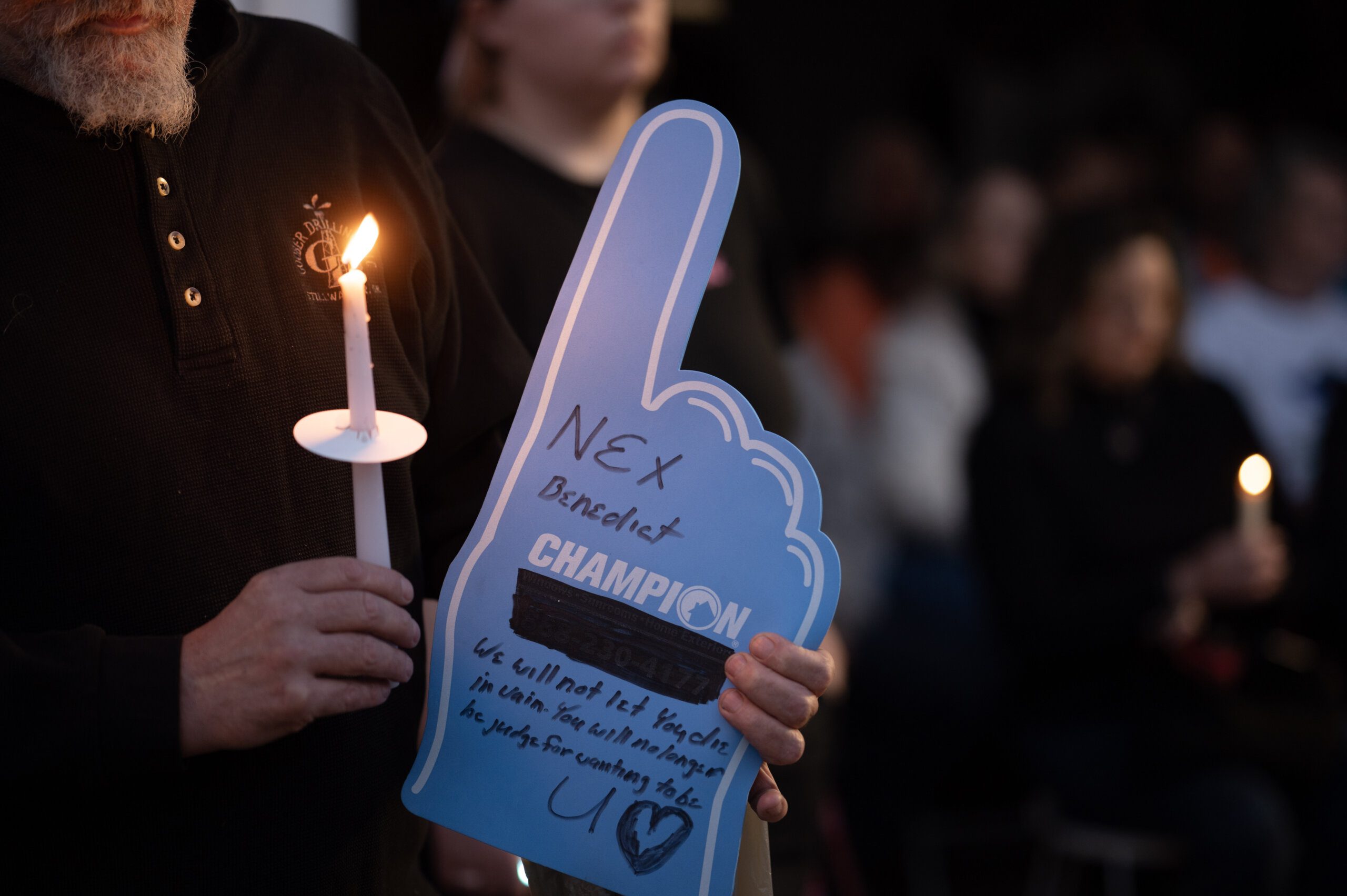
People attend a candlelight vigil for 16-year-old non-binary student Nex Benedict on Feb. 24, 2024 in Oklahoma City, Oklahoma. Credit: J Pat Carter/Getty Images
In November 2024, Nex Benedict finally got justice from the Department of Education. They may be the last queer kid to do so for quite some time.
In February, Benedict, a trans and non-binary student of Choctaw descent, was assaulted in a bathroom by two of their fellow students in Owasso, Oklahoma, and died of an apparent suicide the next day. The bathroom incident was the climax in a long pattern of bullying, and the staff at Owasso Public Schools had turned a blind eye to all of it. (Famously, despite Benedict’s being beaten unconscious in the bathroom, the school refused to call an ambulance.) According to Benedict’s fellow queer and trans students, it was a recurring problem.
The Department of Education’s Office of Civil Rights was able to investigate Owasso School District for violations of Title IX, which rules that federally funded schools shall not discriminate against students on the basis of sex. They found that the district was “deliberately indifferent to students’ civil rights.” (Wildly indifferent: on top of the ongoing homophobia and transphobia, one teacher sent over a hundred sexually suggestive messages to female students on social media. The school, when notified, declined to intervene.)
Title IX has covered trans students’ civil rights at least since the Supreme Court’s Bostock decision in 2020 and, in 2024, the Biden administration issued a new set of rules to explicitly state that trans children were covered. The Benedict investigation was an instance of the system actually working the way it’s supposed to—and that’s why, under the second Trump administration, that system will be burned down.
Trump has vowed to “terminate” Title IX protections for trans students “on day one.” Conservative school superintendents, including Oklahoma’s state superintendent Ryan Walters, who oversees the Owasso School District, have already refused to uphold them. Brett Sokolow, president of the Association of Title IX Administrators, has told reporters that “we’re informing all our members that they should expect sometime in 2025 that the ’24 regs will fall.”
Title IX was never foolproof or fail-safe protection for trans students—again, Nex Benedict literally had to die before the Office for Civil Rights opened an investigation—and it has never completely protected any students from abuse. (The girls who were sexually harassed by their teacher were supposed to be covered by it too.) But it did represent a commitment to the principle that all people are equal, and that all children deserve a safe education. That principle, more than anything else, is what Trumpism is determined to erode.
—Jude Ellison S. Doyle, columnist
Walking the walk on activism

Participants in the parade for 2024 Capital Pride fly both Palestine and progress Pride flags Credit: CPImages
Since the war in Gaza began last year, institutions from universities, to banks, to arts prizes have faced public pressure to cut financial ties with Israel. Calls for divestment hit Prides across the country this summer too, with activists in many cities demanding that their local Pride organizations show solidarity with Palestinians by refusing to work with sponsors who have financial connections to Israel—such as banks who invest in Israeli weapons manufacturers.
Some festivals ignored the calls or issued lukewarm statements—but others, including Capital Pride in Ottawa, St. John’s Pride and Fredericton Pride—publicly expressed their solidarity with Palestinians and committed to divestment. These bold moves were met with appreciation, but also a predictable dose of backlash.
In Ottawa, organizers stayed committed to their promise to integrate the Palestinian BDS National Committee’s boycott list into their review of corporate sponsors, even as participants like the Liberal Party of Canada and the mayor of Ottawa—seemingly spooked by the controversy— backed out of this year’s festival. “Part of the growing Islamophobic sentiment we are witnessing is fuelled by the pink-washing of the war in Gaza and racist notions that all Palestinians are homophobic and transphobic. By portraying itself as a protector of the rights of queer and trans people in the Middle East, Israel seeks to draw attention away from its abhorrent human rights abuses against Palestinians. We refuse to be complicit in this violence,” Capital Pride wrote in a statement. In the end, thousands still showed up to the festival.
We’re often reminded that “Pride is a protest.” This year, it was encouraging to see some Pride organizations insist that protest includes explicit denouncements of antisemitism, Islamophobia and human rights abuses against Palestinians, queer or otherwise.
—Ziya Jones, senior editor, health
Shady Bitches
Alberta premier Danielle Smith

United Conservative Party leader Danielle Smith addresses party members at their annual meeting in Red Deer, Alta., in November. Credit: Jeff McIntosh/The Canadian Press
Alberta premier Danielle Smith is an impressively opportunistic politician. You have to be, to rise to the top in the infamously fickle conservative movement of Alberta that spat out her predecessors like Jason Kenney as soon as it was convenient. Smith has responded to her rise to the top of the United Conservative Party—and obvious desire to stay there—by playing to the asks of some of its most radical members. Those asks have included broad-ranging privatization, weirdo “freedom” stuff like the Alberta Bill of Rights and a bananas classification of carbon as “good.”
And they’ve also included Canada’s harshest slate of anti-trans policies yet.
First introduced in February by Smith in a faux-caring paternalistic video, and voted into law last month, these policies take aim at medical care for trans youth, inclusion in schools and trans women in sports. They follow similar—though notably not as extensive—policies put forward in Saskatchewan and New Brunswick. Their existence has positioned Smith at the forefront of the anti-trans legislative attack in Canada, setting the example for other conservative politicians to follow. And we all should be very concerned about the precedent that’s been set here when it comes to politicizing trans lives and crafting a moral panic.
Myself; senior editor, health Ziya Jones; and various Xtra contributors have spent the past year explaining why Smith’s policies are discriminatory, legally dubious, grounded in misinformation and needlessly cruel. And to be clear, this is a sentiment shared by mainstream media voices, doctors, teachers, nurses, legal experts and basically anyone with common sense. And yet Smith and her government are just plowing forward with them, and in the process contributing to a shift in the public opinion of trans people that will have devastating effects for years to come.
Smith has a majority government and just received an astounding 91 percent approval vote at her recent party convention—a convention where even harsher policy proposals targeting gender-affirming care for adults and trans people’s access to public washrooms were tabled and passed. Barring major surprises—and, to be fair, this is Alberta politics, so anything could happen—Smith has another two and half years to do whatever she wants. As she showed in 2024, a lot of damage can be done in that time and there’s plenty more political football to be played with trans kids’ lives.
Going into 2025, we must be vigilant not only about what is happening in her province but who—I’m looking at you, Pierre Poilievre—is going to take the anti-trans legislative ball from her and run with it. Unfortunately, as we’ve seen in the U.S., this is only the beginning.
—Mel Woods, senior editor, audience engagement
People being transphobes about Imane Khelif

Gold medallist Imane Khelif of Team Algeria kisses her medal after winning at the Paris Olympics Credit: Maja Hitij/Getty Images
What was the most embarrassing part of l’affaire du Imane Khelif? Was it the fact that the news cycle was driven—for weeks—by the completely unfounded conspiracy theory that a cis Algerian boxer was “secretly a man?” Was it the staunch feminist advocates of women’s sports who were scandalized by female boxers punching each other? Was it Khelif’s post-Olympic girly-girl makeover and insistence that even calling her trans was “a big shame for my family, for the honour of my family, for the honour of Algeria”?
It was all pretty dire, but if I had to pick one bit to be particularly grossed out by, it’s this: For the past several years, anti-trans rhetoric has run on the mythical figure of the Scary Transfeminine Athlete. She’s powerful, she’s unstoppable, she’s better at sports than any cis woman ever could be—place your feminism on hold, please; we’re protecting women and girls here—and she’s also so fictional that even transphobes who were actively trying to protest the inclusion of trans women in the Olympics were unable to find an actual trans woman to complain about. They just picked a cis woman who won by a wide margin and made her the boogeyman instead.
It’s 2024. We should not be explaining to self-declared feminists that sometimes women are good at sports, and that this is okay and that it’s not unladylike for an Olympian boxer to know how to throw a punch. Many trans people roll their eyes at the idea that transphobia is “bad for everybody”—the hatred of trans women is already really bad for trans women, and that should be enough—but rarely has the patriarchal gender binary asserted itself with quite such unsubtle force as it did for Imane Khelif.
Then, there’s this: It doesn’t matter what trans people do to rise above transphobia. If we don’t conform to transphobes’ preferred narrative, they will just keep making things up. Transphobia has been unconnected to social or scientific reality for a while now, but maybe we’ll look back on Imane Khelif as the moment the gender-criticals truly cut the cord.
—Jude Ellison S. Doyle, columnist
Generative Artificial Intelligence

A photo illustration of the logo to the OpenAI “Dall-E” AI image generation app. Credit: Leon Neal/Getty Images
We are in the midst of a misinformation crisis, particularly when it comes to queer and trans people. Shifting definitions of “truth” online are having a very real legislative impact on the lives of queer and trans people across North America. At the same time, we’ve seen a rise in the use of generative AI chatbots and image creators. These fancy new tools like ChatGPT—with all of their built-in biases and inaccuracies—aren’t particularly concerned with truth. This is a problem in academia, where universities have had to rush to develop policies around the use of AI in assignments. It’s a massive problem in journalism, where the more we rely on AI for “easy” tasks and quick articles, the more likely we are to introduce errors. And it’s a massive problem for queer and trans people fighting to have our basic existence supported by truth and fact.
Research shows the varying problems with these platforms when it comes to any marginalized group, be that casting all trans people as androgynous with coloured hair, erasing the existence of BIPOC queer people or defaulting to harmful stereotypes about queer stories and lives.
Making Midjourney memes to post online or having ChatGPT write our emails may seem harmless, but there are real dangers with the increasing reliance on these platforms. They fudge reality and they’re reliant on scraping an already unreliable internet for their data. We see this humorously in six-fingered hands or outlandish recipes, but know that those obvious errors are the canary in the coal mine of quieter inaccuracies making their way into our lives.
And of course, don’t forget that the sheer processing power required to make AI tools like ChatGPT run churns through water and energy at a dangerous rate, actively contributing to the climate crisis. Joking about how the world is on fire is fun and all, but it becomes a lot less fun when it gets more and more true.
—Mel Woods, senior editor, audience engagement
JD Vance

Republican vice-president elect JD Vance waves as his wife Usha Vance looks on at an election night watch party. Credit: Alex Brandon/AP Photo
While still shocking, I think it’s fair to say that the U.S.’s 2024 presidential election results were certainly less surprising than Trump’s first election in 2016. (Certainly, this time around his incoherent ramblings and distressing stances were no surprise.) But when I think about how much things have changed in the eight years since the 2016 election, it seems to me that the absurd extremity of Trump’s running mate and now incoming vice-president JD Vance is a good barometer of that change. Of course, like any good American political cartoon villain, his campaign came with its fair share of buffoonery—anyone else remember couchgate?—but the ever-present spectacle element of American politics often just works to conceal darker and deeper threats to our civil liberties.
If we look at Vance’s politics, especially his track record on LGBTQ2S+ issues, it’s nothing to laugh about. Last year, the Ohio senator introduced a bill that would ban puberty blockers for minors—making it a Class C felony for doctors to prescribe them, punishable with 3.5 to 15 years in prison. He proposed a bill that would prohibit using the “X” gender marker for passports. Throughout his campaign, and prior to it, he repeatedly echoed standard right-wing talking points about “groomers” and “parental rights.” He’s stated his opposition to no-fault divorce, railed against the “childless” left and supports the idea of a national abortion ban. And he has close ties to the Heritage Foundation—the right-wing think tank behind Project 2025, an agenda that could have devastating consequences for queer rights in the U.S. if enacted under the Trump administration.
As Xtra contributor Katelyn Burns pointed out back in July, many of these views—and their throughline of restricting bodily autonomy—are deeply out of step with what the American public wants. And yet, these are the views that will guide the next four years of policy from the executive branch. Needless to say: that’s one shady bitch.
—Oliver Haug, contributing editor
The Cass Review
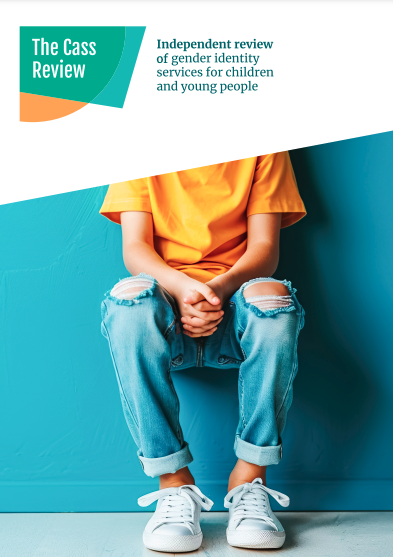
“The Cass Review” was published in April 2024. Credit: The Cass Review
As panic around gender-affirming care began to reach a fever pitch in North America, the U.K. said, “Hold my beer”—and released the Cass Review back in April. The 400-page, NHS-commissioned review was conducted by retired pediatrician Hilary Cass, after the U.K. saw a rise in youth referrals to gender-affirming care. While it’s hard to summarize the findings of such a long document, what the Cass Review basically posited was that there are way more people transitioning today than in the past, which, the report says, could be the result of poor mental health. It also claimed that gender-affirming care options like hormones and puberty blockers have unintended harms—and not enough evidence of effectiveness behind them. The report led to a ban on providing puberty blockers to youth under 18 in the U.K.
While calls to restrict healthcare are worrisome in and of themselves, the report’s detractors also pointed out that the Cass Review had some serious flaws. It seems to pick and choose what evidence is strong based on a particular agenda or view. For example, critics said that the report did not convincingly demonstrate that higher rates of gender dysphoria in children were the result of any social influence or mental health crisis. Similarly, it turns a harshly critical eye on medical interventions, claiming that there is not yet enough evidence to support them. At the same time, the report posits that kids will benefit from psychological interventions—without providing evidence of studies showing that psychological interventions help with gender dysphoria.
The Cass Review also never considers the potential harm of forcing a trans child to go through the wrong type of puberty, nor does it show any evidence of mass-prescribing of gender-affirming hormones or puberty blockers in inappropriate cases.
Similar reviews in countries like Australia and France have not come to the same conclusion that care should be restricted.
Despite its flaws, the Cass Review has quickly become a go-to document for right-wing politicians, groups and other public figures seeking to restrict access to youth gender-affirming care. Flawed, politicized science can be easy to publish—but difficult to counter once it’s out there.
—Ziya Jones, senior editor, health
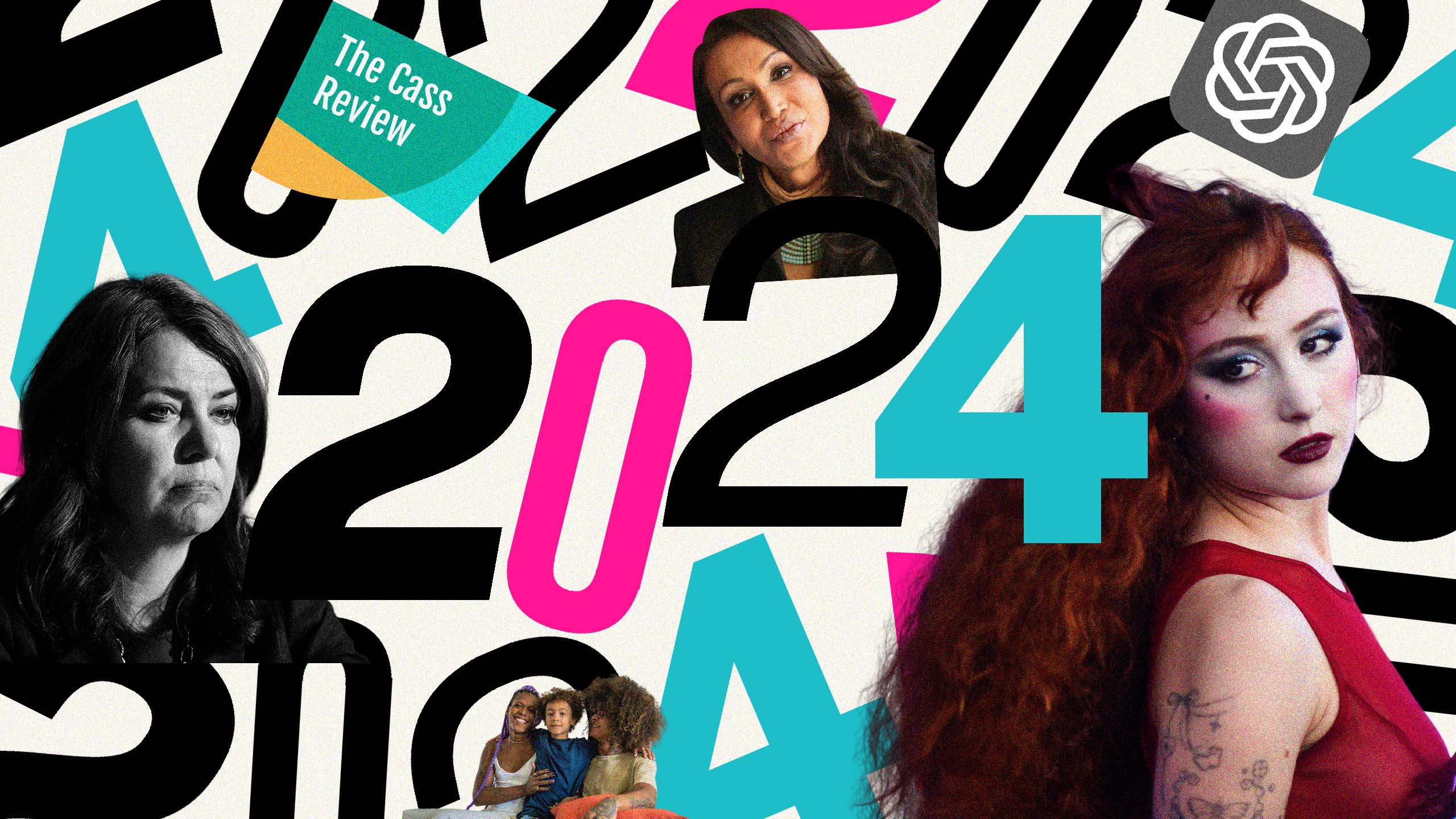
 Why you can trust Xtra
Why you can trust Xtra


